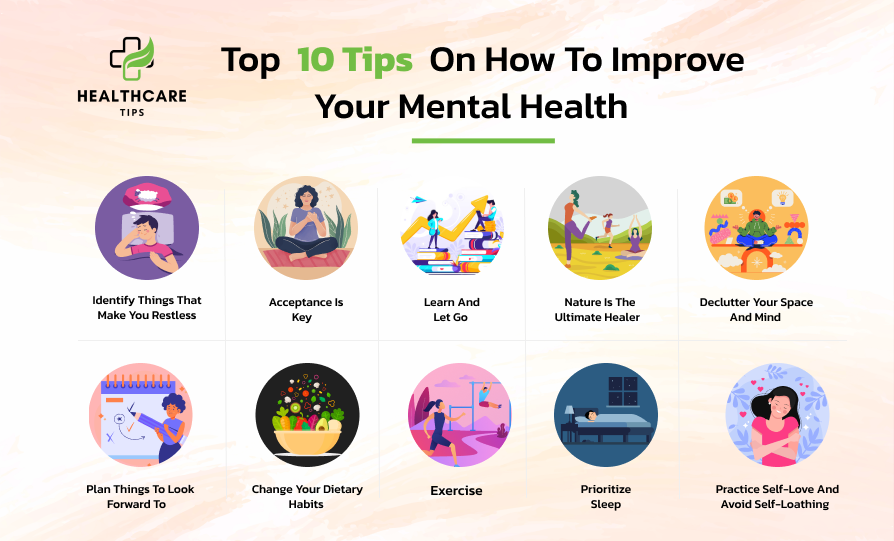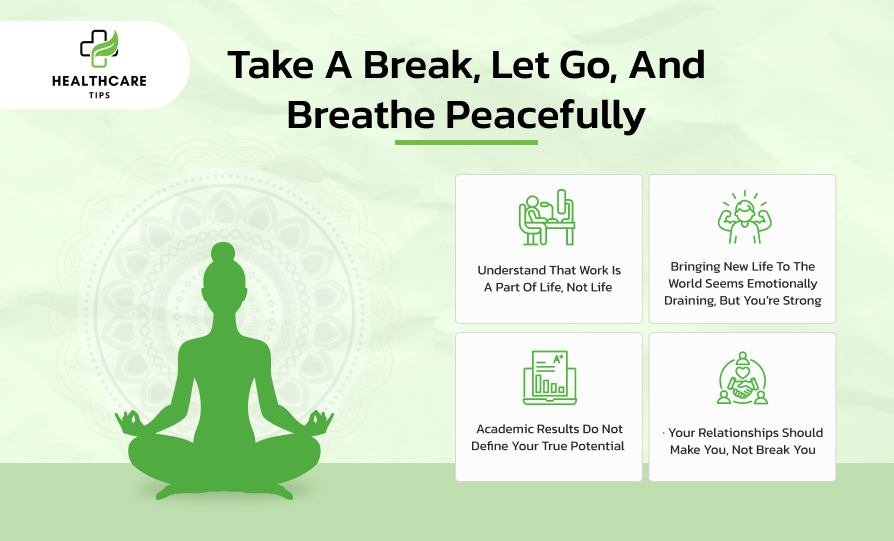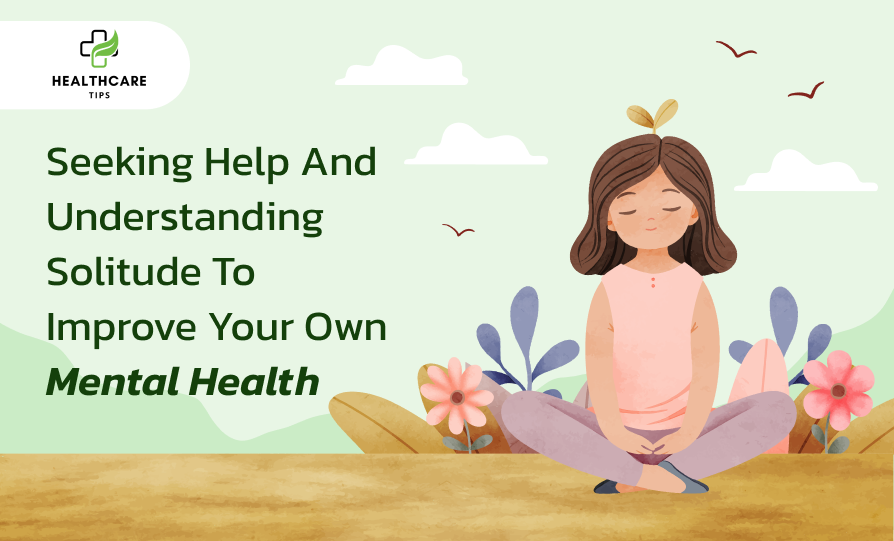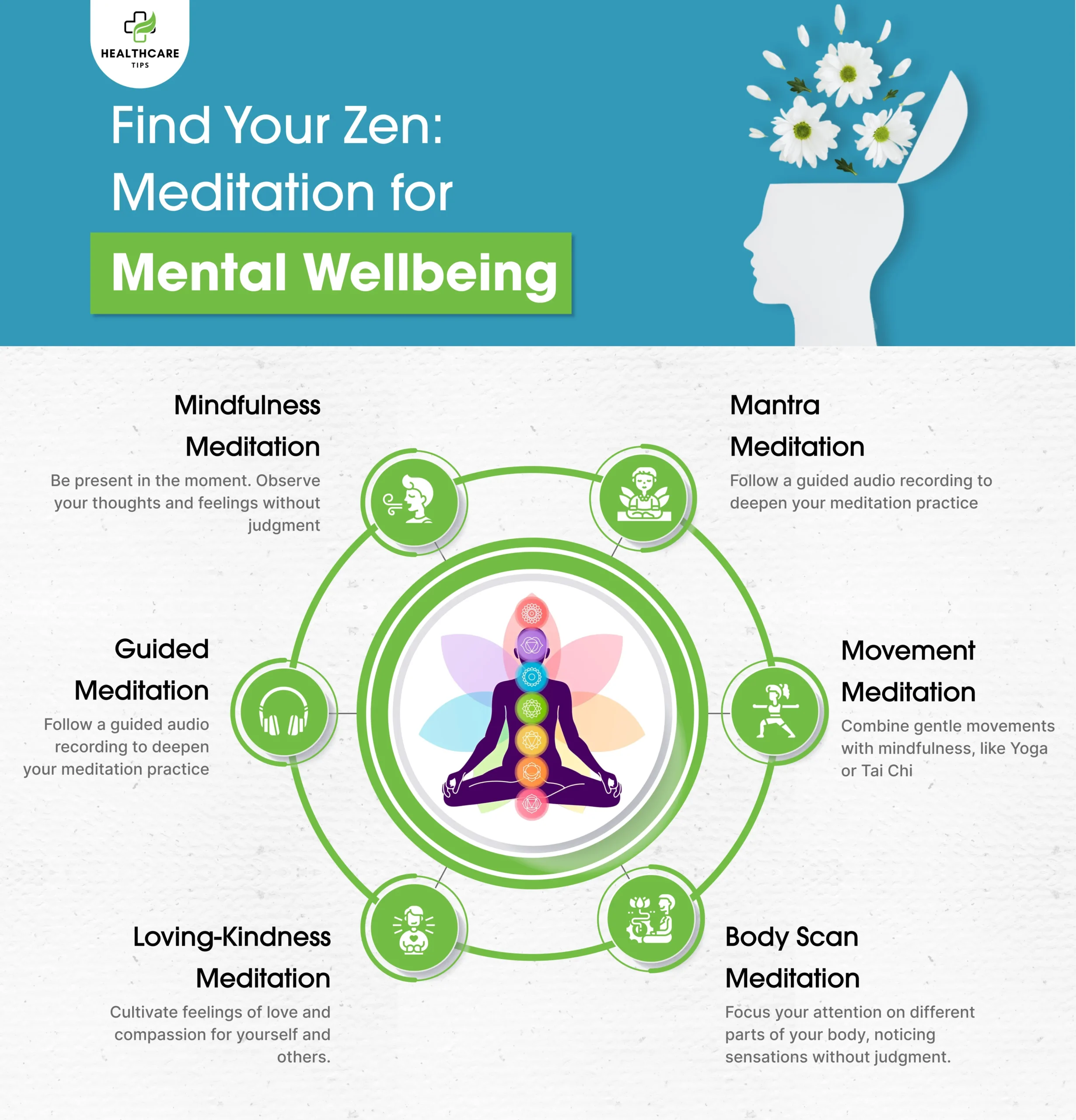Top 10 Tips to Improve Mental Health
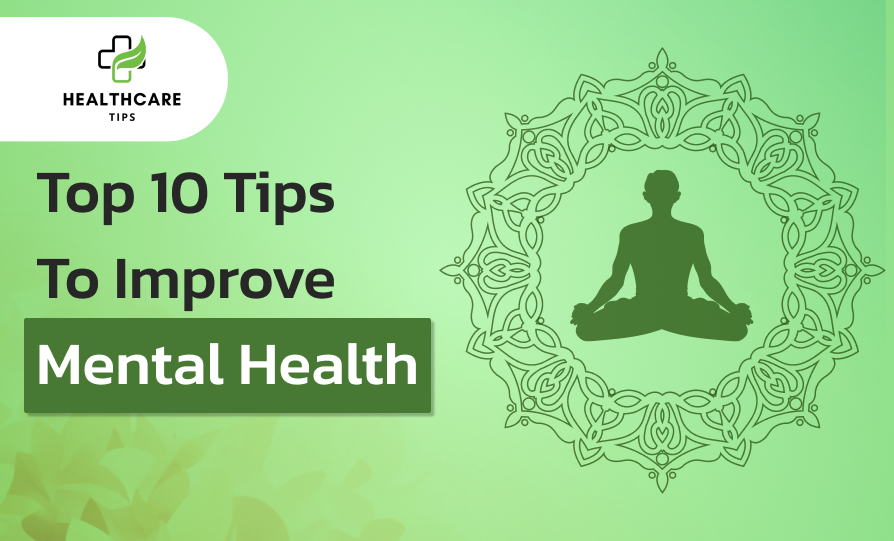
Do you ever feel overwhelmed by stress, anxiety, or negativity? You’re not alone. While trying to make a life for us and our loved ones, we, as humans, have forgotten to live life peacefully with ourselves. Restlessness and stress about what to do next, how to finish a particular task or simply overthinking different aspects of life have become a part of our daily lives. While this crawls into our lives and becomes a part of our daily routine, such habits and this lifestyle take a toll on mental health prominently.
Why Addressing Mental Health Matters Now
But how often do we think about taking care of our minds and learning about how to improve mental health? How often do we, as individuals, make extra efforts, pay extra attention, or go the extra mile to ensure that the feeling of restlessness drains away? Hardly sometimes!
It’s about time we understood ways how to improve mental health…
In today’s fast-paced world, prioritizing mental health is more crucial than ever. Just like physical health, mental well-being forms the foundation for a happy and fulfilling life. But despite its importance, mental health is often overlooked. We often focus more on physical health, neglecting the intricate workings of our minds. However, mental health is unarguably crucial as it influences our thoughts, behaviours, and emotions.
But did you know that regardless of an exhausting lifestyle or a no-time-to-breathe schedule, it is possible to keep mental health in check and adapt to a routine that supports a stress-free life? It all starts with understanding how mental health works and following tips to improve mental health.
Understanding Mental Health
Mental health generally refers to our cognitive, behavioural, and emotional well-being. It affects how we think, feel, and act and is vital at every stage of life, from childhood through adulthood. Good mental health helps us handle stress, relate to others, and make healthy choices. Conversely, poor mental health leads to a variety of issues, that include restlessness, anxiety, depression, and other cognitive disorders. If not taken care of keenly, it can become a severe, alarming situation that calls for medical intervention. Thus, it is essential to understand, identify and put a halt before walking more on the downside of the road. Here is a list of tips to improve mental health and a detailed guide addressing common yet essential aspects that will help you understand the importance of improving it.
Top 10 tips on How to Improve Your Mental Health
Mental Health Tips No. 1 – Identify Things That Make You Restless
The first step to follow while learning how to improve your mental health is recognizing what makes you restless. Stressors can range from work pressure to personal relationships. By identifying these triggers, you can start addressing them effectively. Keep a journal to note down moments of restlessness and the possible causes. This can help in understanding patterns and finding solutions.
Mental Health Tips No. 2 – Acceptance Is Key
Acceptance plays a prominent role in mental health tips. Often, we struggle with situations beyond our control, leading to frustration and stress. Accepting that you can’t control everything around you but can control your mind is liberating. This mindset shift can significantly improve your mental health. Practice mindfulness and meditation to enhance acceptance and reduce stress.
Mental Health Tips No. 3 – Learn And Let Go
Holding onto grudges and negative thoughts can be detrimental to mental health. Learning to let go of past hurts and disappointments is essential. Techniques for mindfulness like cognitive behavioural therapy, CBT can help in reframing negative thoughts. Regularly practising forgiveness for yourself and others can lead to a healthier mind.
Mental Health Tips No. 4 – Nature Is the Ultimate Healer
Spending time is one of the most effective tips for mental health. Nature, the ultimate healer, has a calming effect and helps reduce stress. Activities like hiking, gardening, or simply walking in a park can significantly boost your mood and mental well-being. Make it a habit to spend at least 30 minutes in nature every day.
Mental Health Tips No. 5 – Declutter Your Space and Mind
A cluttered, unorganised environment can lead to a cluttered mind. Organizing your space can help clear your thoughts. Decluttering isn’t just about physical space; it also involves decluttering your mind. Practice mindfulness techniques like journaling or talking to a friend to clear mental clutter. This can lead to a more peaceful and focused mind.
Mental Health Tips No. 6 – Plan Things to Look Forward To
Having goals and activities to look forward to can greatly enhance mental health. It gives you a sense of purpose and motivation. Whether it’s a vacation, a hobby, or a simple weekend plan, having something to anticipate can improve your overall mood and well-being. Set small, achievable goals, reward yourself and celebrate meeting them.
Mental Health Tips No. 7 – Change Your Dietary Habits
What you eat has a significant impact on your mental health. A well-balanced diet rich in fruits, lean proteins, vegetables, and whole grains can improve brain function and mood. Foods high in omega-3 fatty acids, that generally include fish, nuts, and seeds, are particularly beneficial for mental health. Avoid excessive sugar, processed foods, caffeine, alcohol, and smoking as they generally lead to mood swings and energy crashes.
Mental Health Tips No. 8 – Exercise
Physical activity is a powerful tool for improving mental health. Exercise releases endorphins, hormones which are natural mood lifters. Regular exercise generally reduces symptoms of anxiety and depression, keeping your mind fresh. Aim for at least 30 minutes of moderate exercise every day.
|
Type of Exercise |
Benefits |
Examples |
| Cardiovascular Exercise | Increases blood flow to the brain, boosts endorphins (mood-elevating chemicals), improves sleep quality | Brisk walking, running, swimming, cycling, dancing |
| Strength Training | Improves self-esteem, reduces stress hormones, builds resilience | Bodyweight exercises (push-ups, squats), weightlifting, resistance bands |
| Mind-Body Exercise | Promotes relaxation, reduces anxiety, improves focus | Yoga, Pilates, Tai Chi, meditation |
| Team Sports | Provides social interaction, promotes teamwork and belonging | Soccer, basketball, volleyball, team running events |
| Outdoor Exercise | Increases exposure to sunlight (vitamin D production), improves mood, reduces stress | Hiking, biking in nature, gardening, playing sports outdoors |
Mental Health Tips No. 9 – Prioritize Sleep
Sleep is of the essence for maintaining good mental health. Poor sleep schedule leads to irritability, stress, and difficulty concentrating. Establish a proper regular sleep routine, create a comfortable environment, and avoid screens before bedtime. Aim for a solid 7 to 9 hours of deep, quality sleep per night to keep your mind sharp and healthy.
Mental Health Tips No. 10 – Practice Self-love and Avoid Self-loathing
Practising self-love is essential for mental health. Treat yourself with utmost kindness and respect and avoid self-criticism. Engage in activities that make you happy and confident. Surround yourself with positive people who uplift you. Remember, loving yourself is the very first step towards achieving overall well-being.
Pro Tips on How to Improve Your Mental Health
This is your sign to let go, take a break and breathe peacefully
-
Understand That Work Is a Part of Life, Not Life
You want to make money and live a lavish life, and you are hustling hours and hours for that. But what is it worth if you can’t take a break for yourself or be at peace? For working individuals, it’s vital to understand that work is a part of life, not life itself. Maintaining a work-life balance is crucial for mental health. Set boundaries to ensure work does not infringe on personal time. Take breaks, prioritize tasks, and delegate when necessary to avoid burnout.
-
Academic Results Do Not Define Your True Potential
While good results give immense satisfaction and pride, and poor results upset you; it is important to know that these results are not the deciding factor between you and your future. Hard work and dedication pay off; you only need determination without slogging or burdening yourself with the stress of results. Students often face immense pressure to perform academically. Remember, grades will only matter if you are in a good state of mind to celebrate your achievements. Practice effective study habits, take breaks, and engage in extracurricular activities to maintain a balanced life.
-
Bringing New Life to The World Seems Emotionally Draining, But You’re Strong
Every phase of life brings its own experiences, and so does being pregnant. Pregnancy can be an emotional roller coaster. It’s okay to feel overwhelmed at times. Seek support from family, friends, or a counsellor. Engage in activities that relax you and keep you positive. Remember, taking care of your mental health is essential for your well-being and that of your baby.
-
Your Relationships Should Make You, Not Break You
No matter how old we are, one aspect that takes a toll on our health immensely is our relationships. Relationships are one of the most basic and crucial parts of our lives. These strings that keep us attached to the outer world hold the ability to make us or break us when given the ability to. While our relationship should be strongest with ourselves, there’s no argument that companionship is needed. Regardless, your relationships should be a source of support, not stress. Surround yourself with people who encourage and uplift you. Communicate openly and with honesty to avoid any barriers with your loved ones. If a relationship is causing more harm than good, consider seeking counselling or reevaluating its place in your life.
Seeking Help and Understanding Solitude to Improve Your Own Mental Health
Various factors affect mental health, including genetics, life experiences, and family history of mental health problems. Understanding these crucial factors is essential for addressing and improving mental health.
-
Seek Help When Needed
There is no shame in seeking professional help when needed. Therapy and counselling can provide support and strategies for managing mental health issues. If you feel overwhelmed, don’t hesitate to reach out to a mental health professional. Early intervention assists prevent minor issues from becoming major problems.
-
Solitude vs. Isolation
While solitude can be beneficial, providing time for self-reflection and relaxation, it’s essential to avoid slipping into isolation. Solitude should be a choice and a means of self-care, whereas isolation can lead to loneliness and depression. Balance your time alone with social activities to maintain healthy relationships and mental well-being.
Long-Term Strategies for Sustained Mental Health
Improving mental health is not an overnight thing, it is an ongoing process that requires consistent effort and lifestyle adjustments. Implementing long-term strategies can help maintain and enhance your mental well-being over time.
-
Establish Healthy Routines
Routines provide structure and stability, which can be beneficial for mental health. Establish regular routines for sleep, exercise, meals, and relaxation. Consistency in daily activities can reduce stress and increase productivity.
-
Set Realistic Goals
Setting and winning realistic goals provides a sense of accomplishment and purpose. Break larger goals into smaller, achievable, manageable steps and celebrate your progress along the way. This approach can prevent feeling overwhelmed and maintain motivation.
-
Regularly Review and Adjust Your Strategies
Regularly assess your mental health strategies to see what’s working and what isn’t. Be open to adjusting your approaches as needed. Life changes, and so do your needs, so staying flexible and adaptable is crucial for sustained mental well-being.
-
Stay Informed and Educated
Stay informed about mental health by reading books, attending workshops, or participating in online courses. Continuous learning provides new insights and strategies for enhancing mental well-being.
-
Creating A Lifestyle that Supports Your Mental Health
To ensure a calm and composed mind, developing healthy habits should become a lifestyle rather than a mere routine. A lifestyle prioritising mental health can lead to long-lasting benefits and a more fulfilling life.
Find Your Zen: Meditation for Mental Wellbeing
The Power of Your Mind: The Subconscious Is the Strongest Tool
Our minds are incredibly powerful tools, and You have the power to cultivate a healthy mind. How we think about ourselves, our situations, and the world around us shapes our entire experience. By learning to control our thoughts and manage our emotions, we can unlock incredible potential for happiness and success.
“Controlling the mind and its ability to think is akin to controlling almost every aspect of our lives. Our thoughts and perceptions shape our reality. Hence, mastering mental resilience can significantly enhance the quality of life.”
We focus more on physical health, neglecting the intricate workings of our minds. However, mental health is crucial as it influences our thoughts, behaviours, and emotions. Improving mental health is a complex and multifaceted journey. It begins with understanding its importance, creating healthy habits, and implementing practical strategies.
Incorporating these simple yet powerful mental health tips into your everyday routine significantly boosts your mental well-being. These mental health tips also help create a life filled with joy and resilience.
Start integrating these tips to improve mental health into your daily routine, seek help when needed, and prioritize your well-being. Your mental health journey is a lifelong commitment leading to a happier, healthier life.
Sign Up for More Mental Health Tips and Guide to Overall Well-being!
While this blog provided a springboard for cultivating a healthier mind, a vast world of knowledge is waiting for you! Enlighten yourself by diving deeper into the Get Health Care Tips blog, your go-to platform for valuable insights on mental health and overall well-being. Here, you’ll unearth practical tools to manage stress and anxiety, discover simple hacks to improve sleep and nutrition and gain a deeper understanding of mental health conditions and available support resources. Stay informed with the latest research and trends and start a personalized journey towards mental wellness.
Visit Get Health Care Tips today and invest in a happier, healthier, and more fulfilling life!

